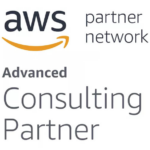In today’s digital landscape, where data breaches and cyber threats loom large, ensuring the security of your cloud infrastructure is paramount. Among the leading cloud service providers, Amazon Web Services (AWS) stands out, offering robust tools and services to safeguard your data and applications. However, even with AWS’s built-in security features, it’s crucial for businesses to assess whether their AWS infrastructure is truly secure enough to withstand evolving threats.
Here are 7 key considerations to evaluate the security of your AWS infrastructure:
Access Management: Properly managing access to your AWS resources is fundamental to security. Utilize AWS Identity and Access Management (IAM) or IAM Identity Center to control who can access specific resources and what actions they can perform. Regularly review and update permissions to align with the principle of least privilege, ensuring that users have only the permissions necessary for their roles.
Data Encryption: Encrypting data at rest and in transit adds an extra layer of protection against unauthorized access. AWS offers services like AWS Key Management Service (KMS) for managing encryption keys and Amazon S3 server-side encryption for encrypting data stored in S3 buckets. Ensure that encryption is enabled for sensitive data across your AWS environment. It has also multiple other scanning services that will save you a ton of time securing your infrastructure and data.
Network Security: Implement robust network security measures to safeguard your AWS infrastructure from external threats. Utilize AWS Virtual Private Cloud (VPC) to create isolated network environments. You might also need to refine your security groups and network access control lists (ACLs). Or perhaps consider using AWS WAF (Web Application Firewall) to protect your applications from common web exploits and attacks.
Monitoring and Logging: Proactive monitoring and logging are essential for detecting and responding to security incidents in real-time. Leverage AWS CloudTrail for auditing API calls and AWS CloudWatch for monitoring AWS resources and applications. Set up alerts and notifications to promptly address any suspicious activity or unauthorized access attempts. You can always use AWS S3 as a data lake for your logs and ship them to a third part monitoring tool that you prefer.
Compliance and Governance: Ensure that your AWS infrastructure complies with industry regulations and internal security policies. AWS provides compliance certifications for various standards such as PCI DSS, HIPAA, and GDPR, helping businesses meet their regulatory requirements. Implement AWS Config to assess and enforce compliance with your organization’s security policies.
Incident Response Preparedness: Have a well-defined incident response plan in place to mitigate the impact of security breaches or incidents. Regularly conduct security assessments, penetration testing, and tabletop exercises to evaluate the effectiveness of your security measures and refine your incident response procedures.
Third-Party Security Solutions: Consider augmenting AWS’s native security capabilities with third-party security solutions and services. From advanced threat detection and vulnerability management to security automation and compliance reporting, there are various third-party tools available on the AWS Marketplace to enhance the security posture of your AWS infrastructure.
If you have any concerns about your AWS infrastructure security, do not hesitate to contact us at Buzzcloud and book a Security review for your infrastructure. We are professional at AWS and glad to help you reach your digital goals.






